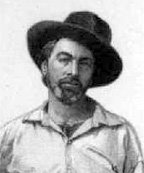
Rupert
Brooke (August 3, 1887 – April 23, 1915) was a British poet best known
for his idealistic, naively patriotic War Sonnets written during the
First World War.
He
entered the army as an officer, as befitted his social class, and took
part in the Antwerp expedition in October 1914. He sailed with the
British Mediterranean Expeditionary Force on February 28, 1915 but
developed septic pneumonia from an infected mosquito bite. He died at
4.20pm on April 23, 1915 off the island of Lemnos in the Aegean on his
way to a battle at Gallipoli. As the expeditionary force had orders to
depart immediately, he was buried at 11pm in an olive grove on the
island of Skyros, Greece. His grave remains there today. -- Wikipedia
He was 27 when he died.
These poems were written before 1914:
The Little Dog's Day
All in the town were still asleep,
When the sun came up with a shout and a leap.
In the lonely streets unseen by man,
A little dog danced. And the day began.
All his life he'd been good, as far as he could,
And the poor little beast had done all that he should.
But this morning he swore, by Odin and Thor
And the Canine Valhalla—he'd stand it no more!
So his prayer he got granted—to do just what he wanted,
Prevented by none, for the space of one day.
"Jam incipiebo, sedere facebo,"
In dog-Latin he quoth, "Euge! sophos! hurray!"
He fought with the he-dogs, and winked at the she-dogs,
A thing that had never been heard of before.
"For the stigma of gluttony, I care not a button!" he
Cried, and ate all he could swallow—and more.
He took sinewy lumps from the shins of old frumps,
And mangled the errand-boys—when he could get 'em.
He shammed furious rabies, and bit all the babies,
And followed the cats up the trees, and then ate 'em!"
They thought 'twas the devil was holding a revel,
And sent for the parson to drive him away;
For the town never knew such a hullabaloo
As that little dog raised—till the end of that day.
When the blood-red sun had gone burning down,
And the lights were lit in the little town,
Outside, in the gloom of the twilight grey,
The little dog died when he'd had his day.
The Hill
Breathless, we flung us on the windy hill,
Laughed in the sun, and kissed the lovely grass.
You said "Through glory and ecstasy we pass;
Wind, sun, and earth remain, and birds sing still,
When we are old, are old...." "And when we die
All's over that is ours; and life burns on
Through other lovers, other lips" said I,
"Heart of my heart, our heaven is now, is won!"
"We are Earth's best, that learnt her lesson here.
Life is our cry. We have kept the faith!" we said;
"We shall go down with unreluctant tread
Rose-crowned into the darkness!".... Proud we were,
And laughed, that had such brave true things to say.
—And then you suddenly cried, and turned away.
Heaven
Fish (fly-replete, in depth of June,
Dawdling away their wat'ry noon)
Ponder deep wisdom, dark or clear,
Each secret fishy hope or fear.
Fish say, they have their Stream and Pond;
But is there anything Beyond?
This life cannot be All, they swear,
For how unpleasant, if it were!
One may not doubt that, somehow, Good
Shall come of Water and of Mud;
And, sure, the reverent eye must see
A Purpose in Liquidity.
We darkly know, by Faith we cry,
The future is not Wholly Dry.
Mud unto mud! -- Death eddies near --
Not here the appointed End, not here!
But somewhere, beyond Space and Time.
Is wetter water, slimier slime!
And there (they trust) there swimmeth One
Who swam ere rivers were begun,
Immense, of fishy form and mind,
Squamous, omnipotent, and kind;
And under that Almighty Fin,
The littlest fish may enter in.
Oh! never fly conceals a hook,
Fish say, in the Eternal Brook,
But more than mundane weeds are there,
And mud, celestially fair;
Fat caterpillars drift around,
And Paradisal grubs are found;
Unfading moths, immortal flies,
And the worm that never dies.
And in that Heaven of all their wish,
There shall be no more land, say fish.
– Cat
